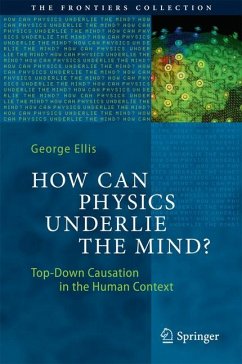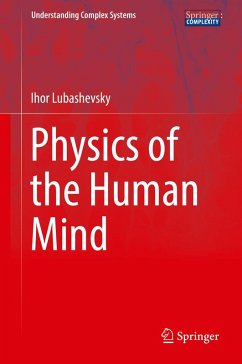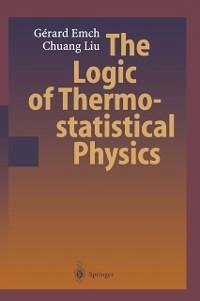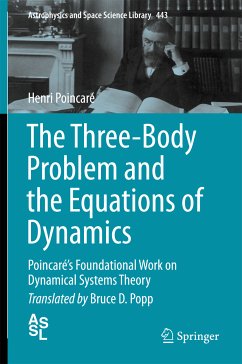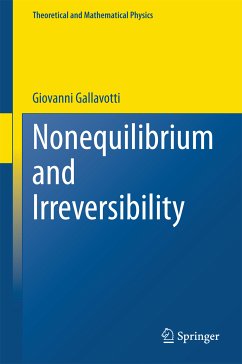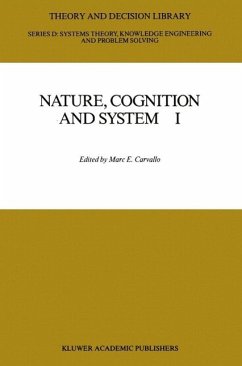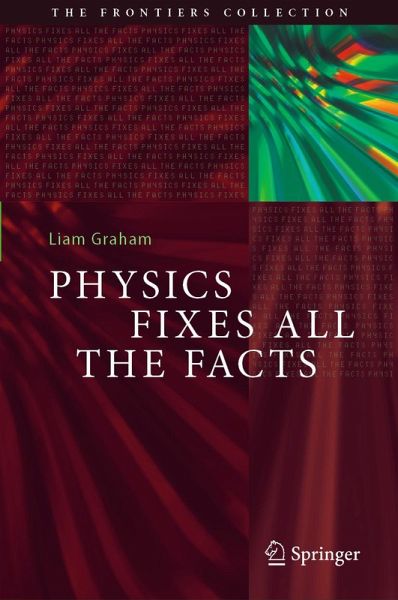
Physics Fixes All the Facts (eBook, PDF)
Versandkostenfrei!
Sofort per Download lieferbar
36,95 €
inkl. MwSt.
Weitere Ausgaben:

PAYBACK Punkte
18 °P sammeln!
Complex systems seem to magically emerge from the interactions of their parts. A whirlpool emerges from water molecules. A living cell from organic molecules. You emerge from the cells of your body. Not since chaos has a concept from physics spread like wildfire to other disciplines. Emergence can be found from chemistry to economics; from psychology to ecology. At its heart is the alluring idea that there's more to the world than physics, that there is a holistic component to nature, an edge of mystery."Physics Fixes All the Facts" starts by taking you on a tour through a fascinating world of...
Complex systems seem to magically emerge from the interactions of their parts. A whirlpool emerges from water molecules. A living cell from organic molecules. You emerge from the cells of your body. Not since chaos has a concept from physics spread like wildfire to other disciplines. Emergence can be found from chemistry to economics; from psychology to ecology. At its heart is the alluring idea that there's more to the world than physics, that there is a holistic component to nature, an edge of mystery.
"Physics Fixes All the Facts" starts by taking you on a tour through a fascinating world of complexity, exploring phenomena from the inside of an atomic nucleus to bacterial behaviour to the ability of your thoughts to affect the world. These examples are used along with a thorough exploration of the philosophical literature to untangle the notoriously poorly defined concept of emergence. This reveals something surprising: the term emergence is redundant. In its weak form it is so weak that it applies to everything. In its strong form it is so restrictive that it is like the belief that there are pixies in your garden, impossible to exclude but not worth spending your time on. Emergence either applies to all systems or to none. Rather than telling us something about the nature of the world, it is an illusion, an artefact of our cognitive limitations.
The past decade has seen a dozen or so monographs and collections about emergence, almost all resolutely supportive of the concept. This book aims to redress the balance. But it is more than just a campaign against the idea of emergence. Graham presents a framework called Austere Physicalism and argues that it is the only coherent way to view the world. He uses this framework to reinterpret so-called emergent phenomena and investigates its wider implications for science. In this radically materialist view, we are nothing but physical systems among others. "Physics Fixes All the Facts" ends by exploring what this means for our sense of free will and consciousness.
The book will appeal to academics in fields which use the concepts of complexity or emergence. Scientists and philosophers alike will find unexpected and exciting ideas in these pages. But the target audience is much broader including students who want to add context to their studies and the intellectually curious with some scientific background.
"Physics Fixes All the Facts" starts by taking you on a tour through a fascinating world of complexity, exploring phenomena from the inside of an atomic nucleus to bacterial behaviour to the ability of your thoughts to affect the world. These examples are used along with a thorough exploration of the philosophical literature to untangle the notoriously poorly defined concept of emergence. This reveals something surprising: the term emergence is redundant. In its weak form it is so weak that it applies to everything. In its strong form it is so restrictive that it is like the belief that there are pixies in your garden, impossible to exclude but not worth spending your time on. Emergence either applies to all systems or to none. Rather than telling us something about the nature of the world, it is an illusion, an artefact of our cognitive limitations.
The past decade has seen a dozen or so monographs and collections about emergence, almost all resolutely supportive of the concept. This book aims to redress the balance. But it is more than just a campaign against the idea of emergence. Graham presents a framework called Austere Physicalism and argues that it is the only coherent way to view the world. He uses this framework to reinterpret so-called emergent phenomena and investigates its wider implications for science. In this radically materialist view, we are nothing but physical systems among others. "Physics Fixes All the Facts" ends by exploring what this means for our sense of free will and consciousness.
The book will appeal to academics in fields which use the concepts of complexity or emergence. Scientists and philosophers alike will find unexpected and exciting ideas in these pages. But the target audience is much broader including students who want to add context to their studies and the intellectually curious with some scientific background.
Dieser Download kann aus rechtlichen Gründen nur mit Rechnungsadresse in A, B, BG, CY, CZ, D, DK, EW, E, FIN, F, GR, HR, H, IRL, I, LT, L, LR, M, NL, PL, P, R, S, SLO, SK ausgeliefert werden.



